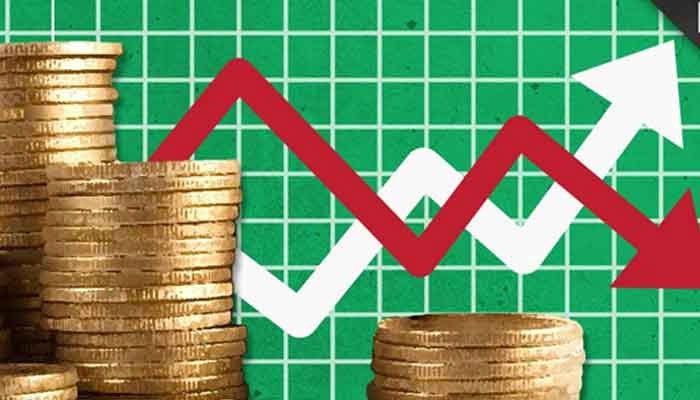Revenue quandary
LAHORE: The next two to three years pose a stiff challenge for the government and the general public as following elections, the new rulers would have to muster political will to take transparent and difficult decisions, while the public would have to bear the brunt of those measures.
Pakistan cannot survive for long on its current revenue stream. The revenue gap is in trillions of rupees. Stringent measures are needed to plug all revenue leakages from the documented sector and to bring tax evaders into the tax net.
The caretaker government has shown its intent by withdrawing many subsidies, but that is not enough. While withdrawing subsidies and increasing indirect taxes seems to be an easy way out, it is not the case.
Power rates have been increased and if the government succeeds in implementing it fully, it would create resources to produce cheaper power after three years. This time around the government would have to make decisions that target the influential segments of society that do not pay their due taxes.
Only then will we create resources for the welfare of our people. Inability of the state to fully document the economy is one factor that is promoting black money. Agriculture tax is not a big issue.
Maximum potential of agricultural tax is nominal when compared with our revenue shortfall. We may take up this issue after we tackle other larger avenues of tax evasion. In agriculture for instance, actual evasion occurs after the agricultural commodities land in
the hands of middlemen who deal in hundreds of billions of rupees, but pay no taxes.
Documenting them properly is the only solution.
Then under-invoicing is a major source of tax evasion, which is a norm in Pakistan. Products are imported at around 10 percent of the actual value.
Assuming that out of total $50 billion imports, 25 percent or $12.5 billion of the imports are under-invoiced, the importers are in fact depriving the exchequer of duties and taxes on products worth $5.0 billion or Rs1.42 trillion (this tax evasion is based on under-invoicing from usual 10 percent to 25 percent of the value).
All our revenue worries would be resolved if the rulers simply muster the courage to tackle the mafia indulged in under-invoicing and the officials that lend them support. Smuggling is another avenue of creation of ill-gotten wealth, which speaks volumes about the ineffectiveness of our border control agencies.
The government could net Rs750 billion additional revenue if smuggling is truly taxed. Manufacturers conceal production that helps them avoid hundreds of billions of due taxes. Instances of under-filing of production have been reported in beverages, sugar. Paper and many industries are often reported in the media.
Retailers remain out of the tax net though their lavish lifestyle suggests that they should be heavily taxed. A strong, determined and dedicated government capable of across the board and transparent action can net all taxes that are being evaded by businesses.
The inability to create fear of audit is the biggest failure of the Federal Board of Revenue (FBR). Fair and transparent audit is the best deterrent against tax evaders. A proper and transparent audit would ensure proper tax collection from under filers. Tax audit in fact should function independently without oversight of FBR. It should be run by dedicated professionals capable of unearthing tax frauds and creating a fear among the evaders that there will be no escape if they fall under tax audit.
-
 All You Need To Know Guide To Rosacea
All You Need To Know Guide To Rosacea -
 Princess Diana's Brother 'handed Over' Althorp House To Marion And Her Family
Princess Diana's Brother 'handed Over' Althorp House To Marion And Her Family -
 Trump Mobile T1 Phone Resurfaces With New Specs, Higher Price
Trump Mobile T1 Phone Resurfaces With New Specs, Higher Price -
 Factory Explosion In North China Leaves Eight Dead
Factory Explosion In North China Leaves Eight Dead -
 Blac Chyna Opens Up About Her Kids: ‘Disturb Their Inner Child'
Blac Chyna Opens Up About Her Kids: ‘Disturb Their Inner Child' -
 Winter Olympics 2026: Milan Protestors Rally Against The Games As Environmentally, Economically ‘unsustainable’
Winter Olympics 2026: Milan Protestors Rally Against The Games As Environmentally, Economically ‘unsustainable’ -
 How Long Is The Super Bowl? Average Game Time And Halftime Show Explained
How Long Is The Super Bowl? Average Game Time And Halftime Show Explained -
 Natasha Bure Makes Stunning Confession About Her Marriage To Bradley Steven Perry
Natasha Bure Makes Stunning Confession About Her Marriage To Bradley Steven Perry -
 ChatGPT Caricature Prompts Are Going Viral. Here’s List You Must Try
ChatGPT Caricature Prompts Are Going Viral. Here’s List You Must Try -
 James Pearce Jr. Arrested In Florida After Alleged Domestic Dispute, Falcons Respond
James Pearce Jr. Arrested In Florida After Alleged Domestic Dispute, Falcons Respond -
 Cavaliers Vs Kings: James Harden Shines Late In Cleveland Debut Win
Cavaliers Vs Kings: James Harden Shines Late In Cleveland Debut Win -
 2026 Winter Olympics Snowboarding: Su Yiming Wins Bronze And Completes Medal Set
2026 Winter Olympics Snowboarding: Su Yiming Wins Bronze And Completes Medal Set -
 Trump Hosts Honduran President Nasry Asfura At Mar-a-Lago To Discuss Trade, Security
Trump Hosts Honduran President Nasry Asfura At Mar-a-Lago To Discuss Trade, Security -
 Cuba-Canada Travel Advisory Raises Concerns As Visitor Numbers Decline
Cuba-Canada Travel Advisory Raises Concerns As Visitor Numbers Decline -
 Anthropic Buys 'Super Bowl' Ads To Slam OpenAI’s ChatGPT Ad Strategy
Anthropic Buys 'Super Bowl' Ads To Slam OpenAI’s ChatGPT Ad Strategy -
 Prevent Cancer With These Simple Lifestyle Changes
Prevent Cancer With These Simple Lifestyle Changes




